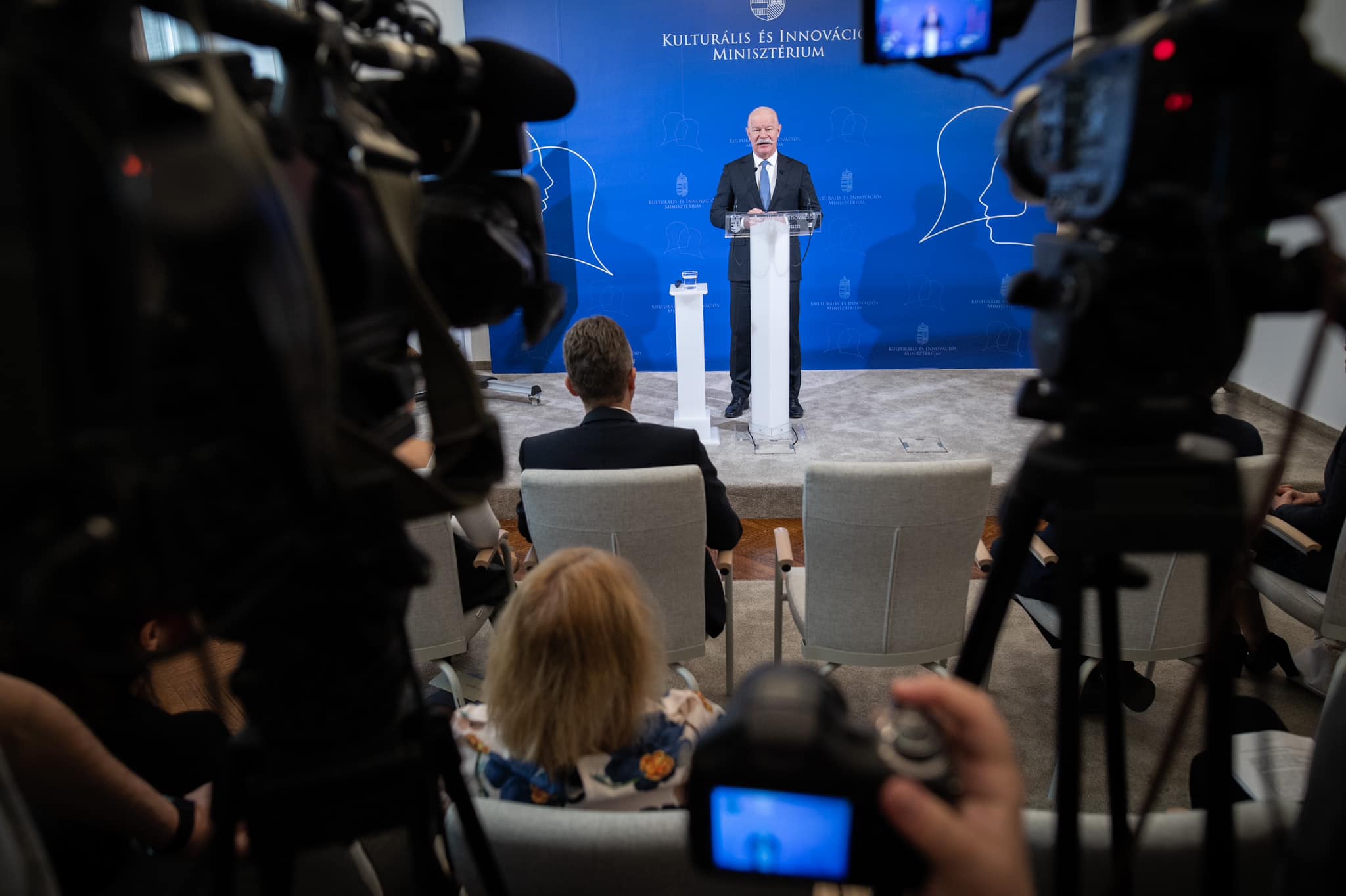
The Foreign Minister welcomed the fact that there are talks between the two sides at all.Continue reading

Minister of Culture and Innovation János Csák announced a new draft of cultural law, emphasizing the country’s commitment to complete artistic and cultural freedom. He reaffirmed that the state has no intention to impose restrictions. The Minister spoke on Info Radio‘s InfoStart program.
“Everyone is free to perform as they wish,” the Minister stated. Mr. Csák dismissed criticisms of the law calling them “infantile” and emphasized a departure from the past approach, declaring, “the days of György Aczél’s (ideologist and director of cultural life during the communist regime) ‘tolerated, banned, supported‘ are long gone.”
The proposed law aims to provide guidance for those involved in public cultural services, with Mr. Csák underlining the necessity for uniform regulation, management, methodology, personnel, and training across different artistic disciplines. He affirmed that
the public service activity of the state requires a unified approach.”
Additionally, the new law will streamline the selection process for heads of cultural institutions and define mandatory methodological training. Minister Csák highlighted the law’s intent to repeal outdated legislation, signaling a modernization effort within the cultural sector.
Regarding resource distribution, he acknowledged the historical disparity, where eighty percent of resources favored Budapest. However, he noted a shift towards proportionality, with two-thirds of allocations now directed to Budapest and one-third to rural areas.
He stressed the goal of widespread cultural accessibility, particularly in district centers.
Csák outlined the involvement of cultural strategy institutions in the law’s review process, emphasizing transparency and consultation. He reiterated the government’s commitment to preserving Judaeo-Christian cultural traditions, citing significant investment in public cultural services.
Furthermore, the Minister emphasized a shift towards supporting outstanding productions and projects over establishing new institutions. He envisioned a networked cultural sector, promoting collaboration among different institutions, exemplified by initiatives like the Hungarian Genius Program. Acknowledging the importance of patronage, he highlighted the Symposium Salon’s role in facilitating collaboration between the business sector and cultural operators.
Regarding higher education, Mr. Csák lauded the improvement in quality, evidenced by the growing number of foreign students.
He emphasized the need for continued enhancement, including increased academic performance and research collaboration between universities. Minister Csák presented a choice between the state and a model university system, emphasizing the latter’s autonomy.
In summary, Csák’s vision for Hungary’s cultural landscape entails freedom, modernization, and collaboration. He encapsulated this sentiment, stating, “the aim is for the cultural sector to operate in a networked way in the future.”
Via MTI; Featured Image: Facebook / Csák János